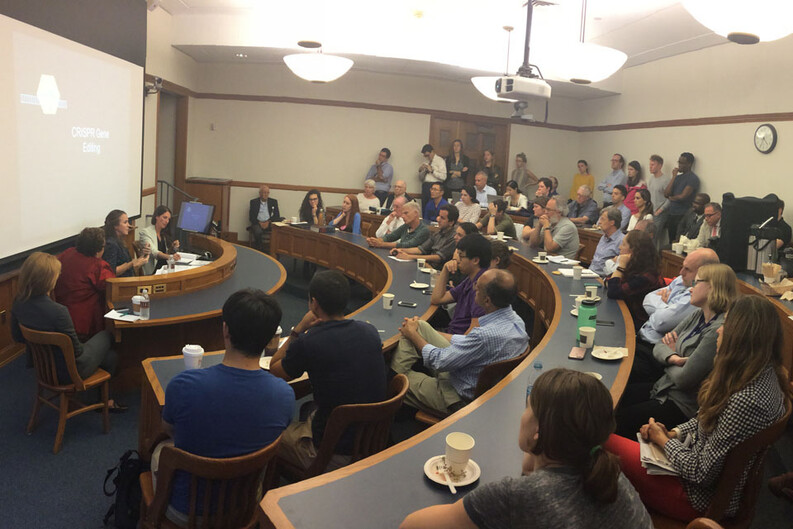Solomon Center Hosts Discussion on CRISPR Technologies

On September 19, 2017, the Solomon Center for Health Law and Policy4, Yale Health Law Policy Society5, and Editing Nature6 hosted a discussion on the legal and ethical issues implicated by CRISPR technologies. These biological tools or systems can make targeted modifications of genes (including in human cells) and may serve as powerful tools to treat genetic diseases, address environmental and public health problems, and catalyze the discussion of human enhancement and eugenics.
The panel, entitled “CRISPR: Legal & Ethical Issues of Gene Editing,” featured Alta Charo, Warren P. Knowles Professor of Law and Bioethics at the University of Wisconsin; Natalie Kofler, founder of Editing Nature at the Yale Institute for Biospheric Studies (YIBS); and Carolyn Neuhaus, a Research Scholar at The Hastings Center, a bioethics research institute in Garrison, New York.
Dr. Kofler opened the discussion by providing an overview of the technology and bioscience behind CRISPR. Although scientists have been manipulating genetic material for years, CRISPR allows for markedly increased precision and efficiency in targeting specific genes for modification. This advancement in gene editing technology could allow for rapid expansion of gene therapies to correct genetic disorders, like Huntington’s disease, and to develop customized cancer treatments that target the unique profile of each patients’ tumors.
Dr. Neuhaus and Professor Charo then highlighted the ethical and legal complications that have already begun to crop up around CRISPR technology. Since Jesse Gelsinger became the first recorded individual to die from gene therapy in 1999, concerns have remained not only about the acute health impacts of unsafe gene therapies, but also the ethical implications of editing the human genome and attempting to create “improved” human genomes with bespoke genetic outcomes. These ethical issues have created legal complications as well, including limitations on the use of stem cells by government-funded researchers. CRISPR technology in particular also implicates many different federal regulators, including the FDA, EPA, and USDA, who will have to find a harmonious way to align their various regulations to promote this new technology without either limiting innovation or under-regulating potentially dangerous new products. As Professor Charo emphasized, CRISPR will begin to collapse categories—for example, how should one categorize a CRISPR-created heirloom tomato? Speakers noted that CRISPR’s legal and ethical future remains an uncertain and exciting field of study.


